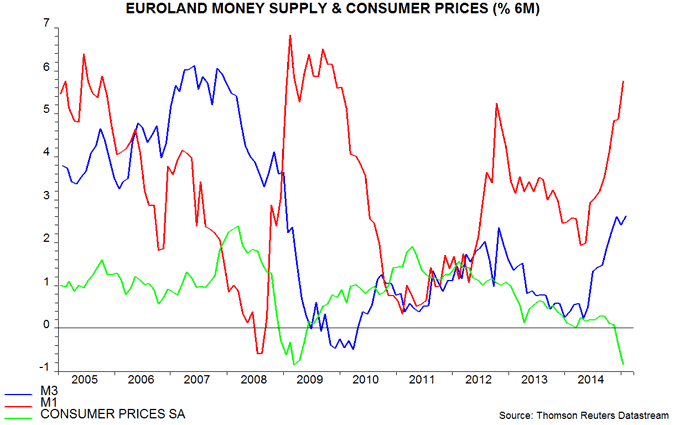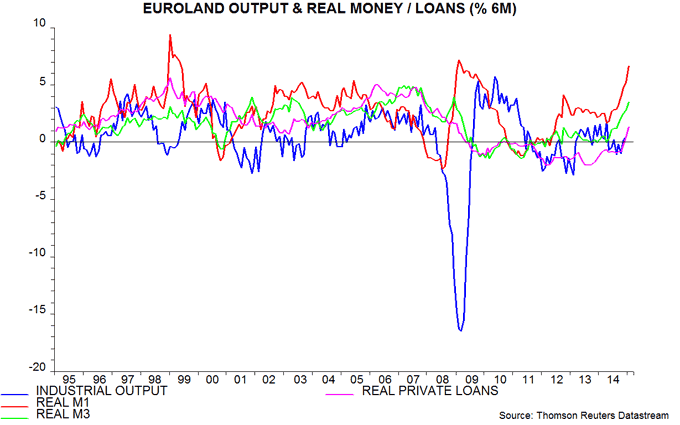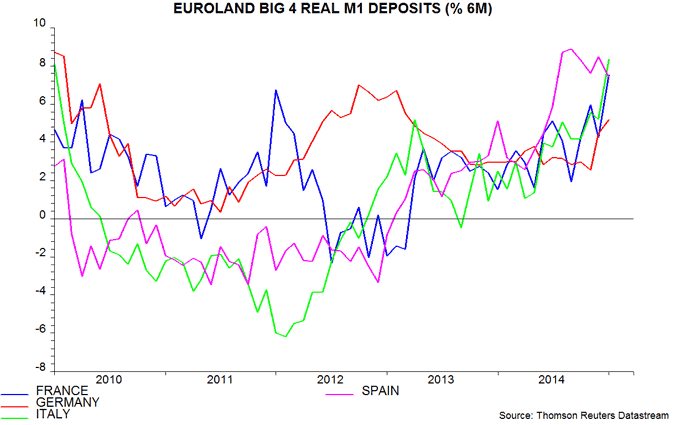Eurozone money growth surging before QE
Strong Eurozone January monetary statistics support the optimistic view here of economic prospects while casting doubt on the wisdom of next month’s launch of sovereign QE.
Narrow money M1 surged by 1.7% last month, with the broader M3 measure up by a solid 0.7%. Six-month growth rates rose to 5.8% for M1 and 2.6% for M3 (11.8% and 5.3% annualised) – the fastest since November 2009 and December 2008 respectively.
Real growth was further boosted by a larger six-month decline in consumer prices, mainly reflecting lower energy costs – see first chart.
Six-month real M1 growth rose to 6.7%, or 13.7%, a level matched or exceeded in only two years since 1980 – 1999 and 2009. Industrial output and GDP subsequently rose strongly in both cases – second chart.
As well as signalling an economic pick-up, the current wide gap between real money and output growth suggests unusually favourable liquidity conditions for markets. Sovereign QE threatens to throw fuel on the flames, leading to destabilising asset price bubbles / busts.
M1, and to a lesser extent M3, have been boosted by the ECB’s rate cuts, which have reduced the opportunity cost of holding money. This does not reduce the significance of monetary strength for economic prospects. Faster money growth confirms that economic agents are responding to lower rates and are likely to increase spending on goods and services and investment in financial markets.
The country breakdown of overnight deposits, which dominate M1, shows strength across the big four economies. Six-month growth of real deposits surged in Italy and France last month and remains buoyant in Spain, with Germany lagging but solid – third chart.
In other news today, German unemployment on an internationally-standardised definition fell to a new post-reunification low of 4.7% in January, far below current US / UK levels, while the job openings (vacancies) rate reached another record. Growing labour shortages should maintain upward pressure on wages – a regional branch of the IG Metall engineering union this week secured a 3.4% rise from 1 April despite weak consumer prices.

Reader Comments